D.W. Griffith & Lillian Gish
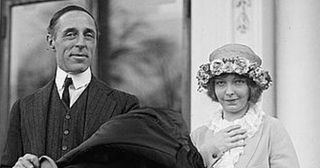
The Shared CV: Cinema's first great director/star partnership, Gish had already starred in 20 shorts for Griffith when he pioneered the feature film with The Birth Of A Nation and Intolerance .
Defining Traits: Griffith favoured simplicity, so Gish tended to play damsels in distress to be rescued in the nick of time.
Going Solo: A trail-blazer in silent cinema, Griffith struggled to adapt to sound and never made a feature after 1931; Gish enjoyed one last classic role in old age in Charles Laughton's Night Of The Hunter .
Blake Edwards & Peter Sellers
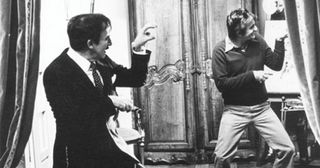
The Shared CV: Sellers was meant to be a supporting player in The Pink Panther , but Edwards spotted so much potential in Inspector Clouseau that the director and star's careers became forever entwined.
Defining Traits: Mixing slapstick with foreign-accented malapropisms, Clouseau became a new comic icon… but his one non-Clouseau film with Edwards, The Party , confirmed the archetype was universal.
Going Solo: Not even Sellers' death prevented Edwards making one last collaboration ( Trail Of The Pink Panther ), obscuring later films such as Victor Victoria and Blind Date .
John Carpenter & Kurt Russell
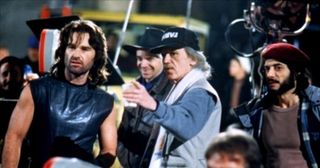
The Shared CV: Carpenter originally cast Russell as Elvis Presley in his TV movie about the singer's life, but soon realised the star made a perfect action hero.
Defining Traits: Russell's irreverence and B-movie style motored Carpenter's no-nonsense genre classics Escape From New York and The Thing .
Going Solo: Definitely a case where director and star work better together - neither has enjoyed quite the same level of pop-culture recognition on their own.
John Hughes & Molly Ringwald
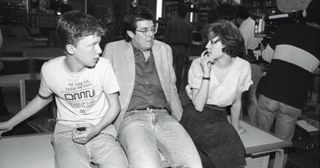
The Shared CV: Ringwald was the same age as her character when Hughes cast her in Sixteen Candles , and she stuck around for The Breakfast Club and Pretty In Pink .
Defining Traits: Ringwald exemplified Hughes' down-to-earth approach to teen movies, capturing all of the gawkiness, self-doubt and sarcasm of real-life teens.
Going Solo: Hughes largely stopped directing to focus on screenwriting; around the same time, Ringwald's career took a nosedive as she left her teens.
Elia Kazan & Marlon Brando
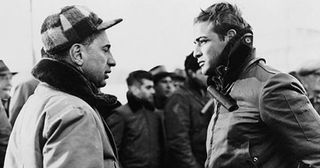
The Shared CV: Kazan and Brando were already well-established partners from Broadway when the director gave Brando his startling big-screen breakthrough in A Streetcar Named Desire . Two collaborations later, both won Oscars for On The Waterfront .
Defining Traits: Method in madness - Kazan's embracing of new theories in acting propelled Brando into a raw style of performance unlike anything seen before.
Going Solo: Controversy dogged Kazan after he named names during the McCarthy anti-Communist witch-hunts, although he continued to work until his death in the 1970s. Brando developed a reputation for truculence but confirmed his greatness with 1972's double-whammy of The Godfather and Last Tango In Paris .
David Lean & Alec Guinness
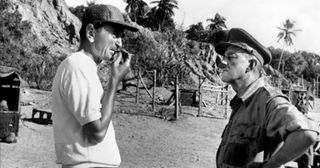
The Shared CV: Lean was an early convert to Guinness' versatility and cast him in both Dickens adaptations and epics: six collaborations in all.
Defining Traits: None - while Guinness' definitive performance for Lean in The Bridge Over The River Kwai was none-more-English, he also played Arabian, Indian and Jewish for the director.
Going Solo: Lean's last film without Guinness, Ryan's Daughter , was so poorly received the director took 14 years off… during which time Guinness became a sci-fi icon as Obi-Wan Kenobi.
Jean-Luc Godard & Anna Karina
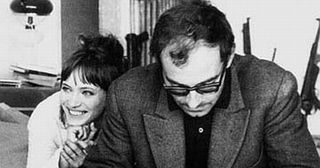
The Shared CV: Twenty-year old model Karina first worked with Godard on 1960's Le Petit Soldat . They married a year later, making a further seven films together.
Defining Traits: As Godard's muse, Karina became a face of the free-spirited French New Wave - many of their collaborations are love letters to her instinctive style, breathless in her company.
Going Solo: Karina kept working, but nothing she did afterwards is as well-known as her work with Godard. To be honest, the same applies to him - he swapped love for Marxism and made increasingly hard-edged, impenetrable political tracts.
Pixar & John Ratzenberger
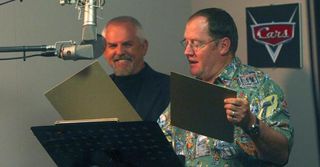
The Shared CV: Stretching the rules a bit, as Pixar isn't a director… but John Lasseter, Brad Bird, Andrew Stanton and others simply can't resist casting the ex-Cheers star as their "lucky charm."
Defining Traits: The warm, avuncular strains of Ratzenberger's voice have become as reliable a barometer of Pixar's quality as the Luxo lamp at the beginning of their films.
Going Solo: It's impossible to imagine them parting company.
Tony Scott & Denzel Washington
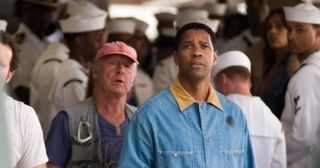
The Shared CV: Up to the mid-90s, you'd wager than Denzel's greatest collaborator would be Spike Lee. And then came Crimson Tide , kickstarting a five-film association with Ridley Scott's kid brother.
Defining Traits: Tony Scott never found a high-concept he couldn't blast even further into the stratosphere, so Washington is the vital anchor to keep the films grounded.
Going Solo: Scott hasn't made a film without Denzel since 2005, but Washington's choices nowadays tend to involve either Tony-esque actioners ( Safe House ) or working with Ridley instead ( American Gangster ).
Orson Welles & Joseph Cotten
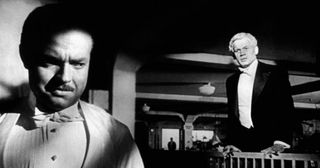
The Shared CV: Long-time colleagues on radio, Welles gave Cotten his first film role in Citizen Kane and continued to cast him up to 1958's Touch Of Evil .
Defining Traits: Cotten's old-world courtesy often made him the hero in Welles' films, allowing the director/star to play the villain - a duality that extends to films Welles didn't direct, notably The Third Man .
Going Solo: Welles' on/off relationship with Hollywood left him wandering across Europe for much of his career, but Cotten proved a capable star without him, particularly in Hitchcock's Shadow Of A Doubt .
